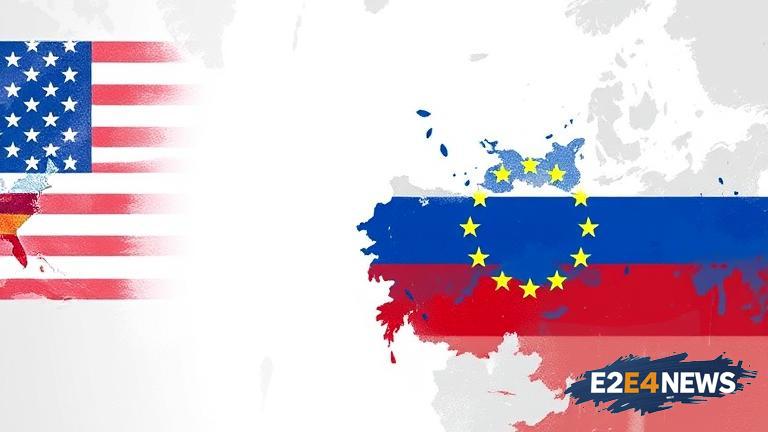The United States and European Union have recently imposed additional sanctions on Russia, marking a significant escalation in their response to the ongoing situation. The new sanctions target key sectors of the Russian economy, including energy, finance, and defense. The US and EU have also designated several high-ranking Russian officials and business leaders for their alleged involvement in the crisis. The sanctions are intended to pressure Russia to change its behavior and to deter further aggression. The US has imposed sanctions on several major Russian banks, restricting their ability to access international capital markets. The EU has also imposed sanctions on several Russian companies, including those involved in the energy and defense sectors. The sanctions are expected to have a significant impact on the Russian economy, which is already facing challenges due to the ongoing crisis. The US and EU have also announced plans to provide additional support to Ukraine, including economic and military aid. The sanctions have been welcomed by many in the international community, who see them as a necessary response to Russia’s actions. However, others have expressed concerns about the potential impact on the global economy and the potential for unintended consequences. The situation remains highly fluid, with ongoing diplomatic efforts aimed at resolving the crisis. The US and EU have made it clear that they will continue to impose sanctions until Russia changes its behavior. The Russian government has responded to the sanctions by announcing plans to impose its own sanctions on US and EU companies. The situation is likely to continue to escalate in the coming days and weeks, with significant implications for the global economy and international relations. The US and EU have also announced plans to increase their military presence in Eastern Europe, in response to concerns about Russian aggression. The sanctions have been imposed under various authorities, including US and EU laws. The US has also imposed sanctions on several Russian individuals and entities under the Magnitsky Act. The EU has imposed sanctions on several Russian companies and individuals under the EU’s Common Foreign and Security Policy. The sanctions are expected to be implemented in the coming days and weeks, with significant implications for the Russian economy and international relations. The US and EU have made it clear that they will continue to work together to respond to the crisis, and to impose additional sanctions if necessary. The situation remains highly uncertain, with ongoing diplomatic efforts aimed at resolving the crisis. The US and EU have also announced plans to provide additional support to other countries in the region, including Moldova and Georgia. The sanctions have been welcomed by many in the international community, who see them as a necessary response to Russia’s actions. However, others have expressed concerns about the potential impact on the global economy and the potential for unintended consequences.
